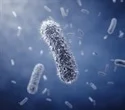Have you ever experienced “hangry,” or being so hungry that you become angry? Adam Rosenthal, PhD, an assistant professor in the department of microbiology and immunology, has discovered new evidence that some bacteria cells experience hunger, releasing toxic substances into our bodies that can harm humans.
Using recently developed technology, Rosenthal and his colleagues from Harvard, Princeton, and Danisco Animal Nutrition discovered that genetically identical cells within a bacterial community have different functions, with some members behaving more docilely and others producing the very toxins that make us feel ill.
The results, which were published in Nature Microbiology, are crucial for understanding how and why bacterial communities delegate tasks to certain cells. They may also suggest novel approaches to combating antibiotic tolerance in the future.
Rosenthal made the decision to examine more closely at the differences between “bad actors” who are responsible for leaking toxins into the environment and “well-behaved citizens,” as some cells are. He chose the rod-shaped bacteria Clostridium perfringens, which may be found in the intestines of humans and other animals, insects, and soil.
They were able to partition or separate single bacterial cells into droplets using a technology known as a microfluidic droplet generator, which allowed them to decode each and every cell.
They discovered the C. If we give more of these nutrients,” postulated Rosenthal, “maybe we can get the toxin-producing cells to behave a little bit better.”
Researchers then exposed the bad actor cells to a substance called acetate. Their hypothesis rang true. Not only did toxin levels drop across the community, but the number of bad actors reduced as well. But in the aftermath of such astounding results, even more questions are popping up.
Now that they know that nutrients play a significant role in toxicity, Rosenthal wonders if there are particular factors found in the environment that may be ‘turning on’ toxin production in other types of infections, or if this new finding is only true for C. perfringens.
Perhaps most importantly, Rosenthal theorizes that introducing nutrients to bacteria could provide a new alternative treatment for animals and humans, alike.





